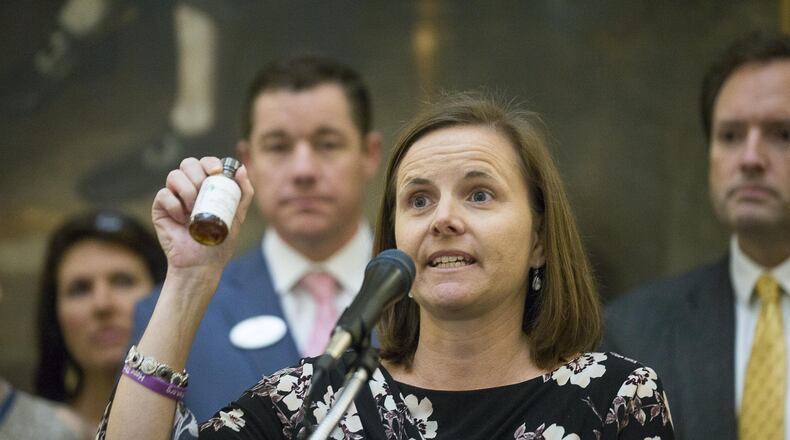It’s a dilemma that keeps Smyrna resident Shannon Cloud up at night: Who will care for her adult daughter when she and her husband die?
Though Alaina Cloud just turned 19, she requires around-the-clock care because she has a rare form of epilepsy that stunted her development from the age of 4. Alaina can’t ever be left alone, Cloud said, because aside from the developmental deficit, she suffers seizures due to a rare condition known as Dravet syndrome.
“It’s scary not to know what comes next,” Cloud told The Atlanta Journal-Constitution.
Families like the Clouds care for an estimated 20,000 people in the U.S. who have Dravet syndrome, according to Stoke Therapeutics. Dravet causes seizures, usually beginning between the ages of 12 months and 4 years of age.
Cloud says families in Georgia caring for dependent adults with Dravet and other disabilities like Down syndrome and cerebral palsy are being left alone because the state’s system for serving these people is in crisis. Parents and service providers say more state funding is needed to prevent a system collapse, the AJC previously reported.
It’s a refrain that has led Cloud to the Gold Dome time and again. In 2014, she pushed Gov. Nathan Deal to legalize medical marijuana, the AJC reported. Five years later, she stood in front of the Georgia State Capitol building in Atlanta, a bottle of THC oil in her right hand, to protest the fact families like hers were being left in the dark as to how they could actually obtain medical marijuana licenses. Cloud’s daughter uses THC oil for relief from seizures.
And this year, Cloud has a message for families in the Peach State struggling over the logistics of caring for adult children: one of their top priorities needs to be establishing guardianship before the child turns 18.
She and a drug company have created a new website to help families along this journey. Though the site is aimed at family members caring for a child with Dravet syndrome, it contains information that can be useful to families whose loved ones have other developmental deficits.
The VIP Rare Care site helps families find care options for adults over the age of 18 living with Dravet syndrome. A second site, VIP Sibling, helps families manage the complicated conversations that take place when parents and siblings face the challenge and stress of caring for a child with Dravet syndrome. The site is run by drugmaker UCB, Inc.
It emphasizes the importance of guardianship — a process that, if not done correctly, and before the child turns 18, could result in families’ losing access to benefits and even decision-making ability related to their loved one, said Laurie Bailey, rare epilepsy advocacy lead at UCB. “If families don’t establish guardianship before the loved one turns 18, they will no longer be able to speak for their epileptic child,” she said.
According to the Georgia Department of Human Services, Division of Aging Services, guardianship is a probate court appointment of a person who looks after and is legally responsible for someone who is unable to manage his or her own affairs. The power of a guardian over the person is like that of the parent over his child, and is critical in situations like the one facing the Cloud family. Their daughter will require a guardian for the rest of her life.
Finding the right guardian and locking in that person’s legal status is critical because one of the most financially draining and stressful steps in a disabled person’s life is the move out of the family home, Cloud said.
Most adults living with Dravet syndrome will never be unable to work or care for themselves, according to the Children’s Hospital of Philadelphia.
Patient advocates in Georgia say the website will help families navigate an often complicated array of state and federal programs set up to help them.
Though Cloud was able to secure Supplemental Security Income (SSI) Disability & Medicaid coverage for her daughter, she says Georgia’s support programs for families — New Option Waiver Program (NOW) and Comprehensive Support Waiver Program — are teetering. More than 7,000 people who have various long term care needs are still on a waitlist to receive a waiver in exchange for services that would allow them to leave institutions or remain in their homes, the AJC reported.
“People have to call and beg,” Cloud said. “We are essentially waiting for people to die to free up spots.”
About the Author
Keep Reading
The Latest
Featured


